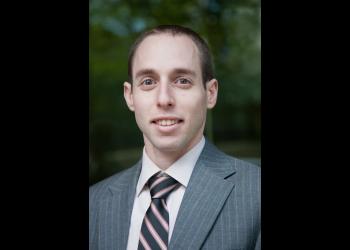Beyond "For" or "Against": Reframing the Discourse on Religion and Development
People of good will, motivated by sincere wishes to advance well-being around the world, often differ sharply when it comes to the specifics of religious belief. Yet virtually everyone recognizes that religious belief touches the deepest roots of human motivation, that it is a social phenomenon that plays out at massive scales, and that its impact on the systems and structures of society is multifaceted, interrelated, and complex.
However, the discourse at the UN and in international development work rarely reflects the nuance and complexity inherent in a phenomenon as pervasive and influential as religion. Some in the UN community assert that religious communities and faith-based organizations will be critical to realizing our shared aspirations. Others want nothing to do with them.
The conversation often seems to boil down to a black-and-white choice between one view or the other. One is either “for” religion in development or “against” it. And this, in my experience, leaves the dialogue stuck, leading away from productive or useful outcomes, and towards circular patterns of dispute and contention.
Is this our only option? Dichotomies of this kind – economic development versus environmental sustainability, for example, or top-down versus bottom-up approaches – often prove to be overly simplistic at best, and often patently false. Ultimately, they are not “won” by one side or the other. Rather, they must be transcended by a deeper understanding of the underlying realities of the broader situation.
This, I think, is what’s called for in the case of religion – and openness to the possibility that the fundamental challenge we face might have less to do with religion itself, and more to do with the way that we think about it.
In this regard, Michael Karlberg of Western Washington University has suggested that what is needed is an entirely a new discourse on religion. Thoughtful consideration and collective self-reflection on the nature and function of religion will be required, he writes, if it is to serve as a contributor to human well-being and advancement:
What is religion? What do we need from religion? What do we expect or demand from those who claim to be practicing religion? And what criteria must be met in order to merit the name religion?... Rather than endlessly arguing “for or against religion,” why not foster thoughtful discourse on what we mean by religion and what we need from, or demand from, religion?
Such an endeavor of collective inquiry has parallels in the discourse around scientific enterprise and the historic contribution of science to humanity. Dr. Karlberg writes:
The advancement of science has been driven, in part, by an ongoing discourse on science that has placed increasingly stringent demands on what kinds of knowledge and practice can legitimately claim the name “science.” Even though the discourse on science is still evolving…the discourse has already provided many important insights that help people distinguish legitimate science from pseudo-science, or junk science, or any of the spurious things people have historically done in the name of science.
That discourse, in other words, has spent several centuries defining what science ought to be, if we are to say that it is contributing to the advancement of civilization.
And just as astrology and alchemy had to be separated from astronomy and chemistry for civilization to benefit from science, legitimate religion will need to be distinguished from damaging expressions of superstition, fanaticism, and ignorance, if society is not to be hamstrung by those who would act in its name toward ends that are base, corrupt and perverse.
What, then, are characteristics of a conception of religion that betters the condition of humankind? What is required in order for humanity to progress?
There is no consensus on these questions yet. My organization, the Baha'i International Community, has recently begun hosting a series of small group discussion on the role of religion in public life, and I can say from experience that even learning how ask such questions is no small task.
But orienting current discourse on religion towards the needs of civilization in its entirety seems critical to moving past narrow and fruitless debates between supporters and detractors, and pursuing instead the real and lasting progress we all want to see. Perhaps then we can discuss religion in the same way we discuss science.
- by Daniel Perell, Representative of the Baha’i International Community to the United Nations
